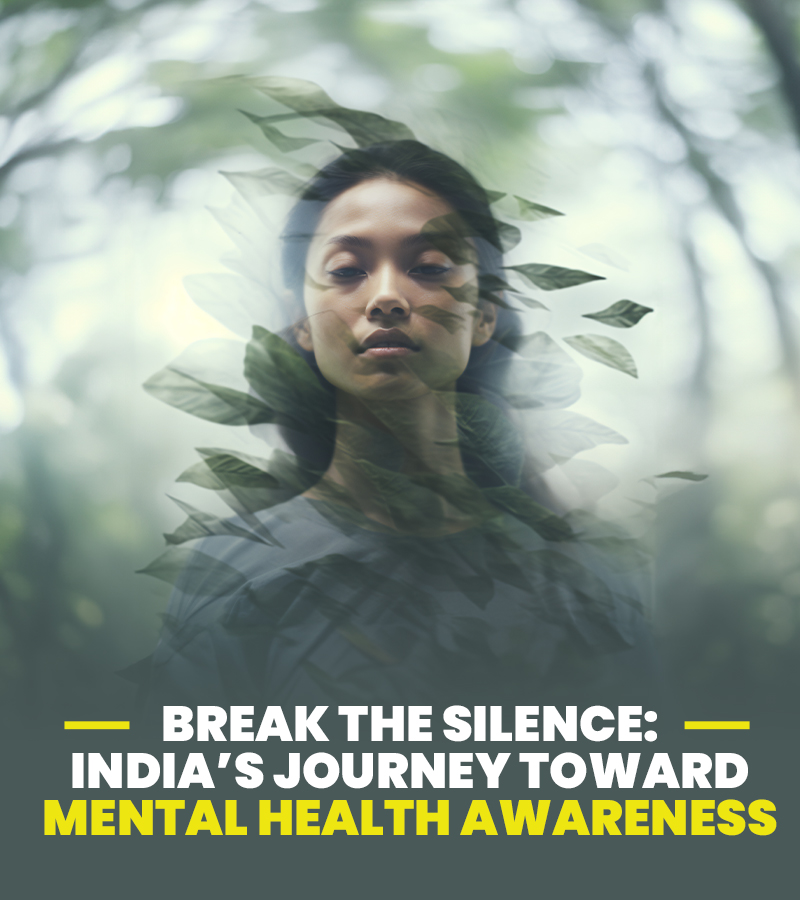

Mind Matters: Why India Needs to Talk About Mental Health
Mental health awareness is critical in India. Explore how we can break the stigma and create a supportive environment for all.
For some time now, there has been considerable awareness of mental health issues in India, but it continues to be a subject feared and misunderstood. The rise in the number of depression, anxiety, and other mental illnesses cases has made it necessary to address the issue more candidly. Vivek Ranjan Agnihotri, a renowned director and thought leader himself, has often spoken on his YouTube channel regarding the aspect of mental health about how silence needs to be broken and a motivating atmosphere should be created.
Understanding Mental Health
Mental health generally refers to that level of psychological well-being, which enables an individual to think, feel, and behave in a manner that enables him or her to handle stress, relate to others, exercise choices, and otherwise meet their responsibilities in the family, work, and community. In India today, growing awareness notwithstanding, mental health has not been taken seriously by the majority of the populace, with most people shying away from seeking assistance because of social stigma attached to mental illness.
The Stigma Around Mental Health
One of the greatest challenges in introducing mental health awareness within India is that such issues remain victims of stigma. In most cases, mentally challenged people are branded as “mad” or “weak,” a factor that leads to social boycott and discrimination. As this stigma functions as a barrier to encourage individuals to seek help, worse conditions prevail for them. Vivek Agnihotri has touched upon this issue through his videos, encouraging society to view someone who is suffering from mental health issues as tolerant rather than judgmental.
The Role of Education in Mental Health Awareness
1. Mental health education as part of the curriculum: Schools and colleges must introduce mental health education to reduce stigma and promote early intervention.
2. Addressing Youth: Young people are most at risk of experiencing mental health issues, and educational efforts need to be targeted to them.
3. Education to Ally: Education can be a powerful tool toward changing attitudes among society for greater empathy instead of judgment.
4. Empowering Future Generations: Educating students on mental health equips them better for handling challenges in life.
Social Media and Mental Health
Social media nowadays is an important factor in relation to mental health. First and foremost, it is a support and awareness platform, but it could also be something that makes anxiety, depression, and low self-esteem worse. Endless comparing on social media, cyberbullying, and facing pressure to portray a beautiful picture of life on social media may all affect mental wellbeing. Agnihotri has brought out the double-edged sword of social media, which calls users to take care of their online activities and influence others in a positive manner.
Challenges in Accessing Mental Health Care
Awareness, however, has been increasing – though access to mental care in India still remains low. India, with its shortage of mental health professionals, still faces high treatment costs unavailable to the poor underclass, especially rural areas with insufficient mental health services. In such a scenario, Agnihotri appealed for better infrastructure and government support toward making mental health care accessible and affordable.
The Need for Open Communication
Breaking the silence on mental illness requires open discussion. To normalize mental health issues, there is a need to promote dialogue and discussion that relates to mental health. According to Agnihotri, individuals should share their experiences and listen to others with empathy because such a culture would bring about understanding and support.
Involving Mental Health in Policy Formulation
For radical change, mental health must be a prioritized policy. There is a dire need for investment in the infrastructure of mental health, improved professional training, and public awareness campaigns. Agnihotri has repeatedly said that, just like India needs strong leadership in the area, it needs robust policy intervention in this field.
The Role of Media in Mental Health Awareness
The media gives a definition to how people think about mental health. Movies, sitcoms, and the news are capable of either perpetuating stereotypes or dismantling them.
Conclusion
The awareness of this issue is very necessary in India and indeed everywhere. Individuals, communities, and governments should come together to solve this problem. Breaking stigma, improving access to care, and opening conversations can help create an environment that will support those who are working through mental health. The work and public discourse of Vivek Ranjan Agnihotri have been essential in bringing mental health to the forefront of national conversation. It is time for all of us to do our share and make mental health a priority in our lives and communities.






